Unknown codex by humanist Bernardius Florentius, 1476, Florence, Italy
£23,000.00
Bernardinus Bardutius Florentinus, Brevis morum instructio, on the manners and mores preferable for leaders of the Franciscan Order, adapted by the author for Franciscus Sansone, Vicar-General of the Franciscan Order, and citing many rare Classical Greek and Roman authors, in Latin, fine humanist manuscript on parchment.
[Italy (probably Florence), 4 October 1476 or immediately after]22 leaves (plus a nineteenth-century paper pastedown and endleaf at each end in addition to an original parchment endleaf at each end), complete, collation: i11 (the first leaf the volume’s original parchment endleaf and thus a singleton), ii11 (the last leaf the volume’s original parchment endleaf and thus a singleton), written in single column of 22 lines of a professional humanist hand with influences from secretarial script, capitals paraphs and one long rubric in faded red, Classical authors names in same faded red in margins, text ending with “Deo Gratias Telios” in same red, frontispiece with an illuminated initial on green, blue and pale pink grounds highlighted with thin white foliate sprays and edged with black penwork, adjacent border filled with a panel of coloured foliage surrounded by gold bezants bristling with hairline penwork, notably clean with very few marginalia, some small spots and stains, one erasure at foot of fol. 1r (doubtless an Early Modern ex libris), a few wormholes, overall in good condition and on fine parchment, 168 by 110mm.; in nineteenth-century binding of brown marbled pasteboards with brown leather spine (perhaps German), small bumps and scuffs, else good condition
THIS IS A FINE COPY OF A HUMANIST WORK, CITING NUMEROUS GREEK AND ROMAN CLASSICAL AUTHORS AND STORIES FROM ANCIENT GREEK HISTORY – THIS WORK IS APPARENTLY UNKNOWN IN ANY OTHER COPY, WITH THIS PERHAPS THE PRESENTATION COPY MADE FOR A HEAD OF THE FRANCISCAN ORDER, OR AT LEAST PRODUCED FOR AN IMMEDIATE FOLLOWER OF HIS
Provenance:
- The style of the initial on the frontispiece strongly suggests Florence as an origin for this book, and its subject matter indicates that it was almost certainly made for a high-ranking Franciscan there. Indeed, the fact that the text here discusses the manners and mores preferable for leaders of the Franciscan Order, as adapted for Franciscus Sansone (1414-1499; Vicar-General of Franciscans from 13 May 1475) might be taken to mean that this book was produced for someone in his orbit, or perhaps even himself. The work was never published and we can trace no other manuscript copy. Moreover, no copy of this work, or indeed anything by its author, can be found by us in sale records. Thus, this may well be the presentation copy itself, made for Franciscus Sansone, and perhaps gifted to him by author on his election to the leadership of the Franciscan Order.
- In the sixteenth century, two separate humanist hands then added a Latin motto and the author and title of the work to the verso of the last original endleaf.
- Karl Edler von Stockhammern (1869-1928) of Berlin, German diplomat, State-Bureaucrat and book collector: his armorial bookplate dated 1901 (as designed for him by Adolf Matthias Hildebrandt) pasted to front pastedown. Recently remerging in the German booktrade.
Text:
The core of this text appears to have been composed by Bernardinus Bardutius Florentinus (1408-1498), a celebrated Franciscan preacher based in the convent in Cinelli, north of Rome, at some point before 1475. He then appears to have returned to this work around 13 May 1475 to personalise its readings for the addressee, Franciscus Sansone. Bernardinus is recorded as the author of three works in manuscript: the Dialogus de laudibus Castitatis et Virginitatis, the Oratio habita Urbini in capitulo generali in laudem illustrissimi ducis Urbinatis, and the Epistola ad Iohannem Nesium in laudem civitatis Veronae, was printed in Verona in 1489. As noted above the text did not appear in print in either its pre- or post-1475 forms, and is known in no other manuscript we can trace, and thus the present witness would appear to be the only surviving record of this text.
Bernardinus Bardutius was clearly an accomplished and widely read humanist author, and in addition to a handful of Christian sources, most notably those of St. Francis, the present text cites in support of its moralising message about good leadership: Aristotle, Demosthenes, Sallust, Lactantius, Horace, Terence, Isocrates, Diogenes, Nicholas of Damascus, Alexander the Great, Cicero, Aesop and Quintilian, as well as rarer references to stories about Odysseus/Ulysses (here “Vlixes”) drawn from Homer’s Iliad, and perhaps rarest of all, Sardanapalos, an opulently self indulgent and cross-dressing final king of Assyria in the seventh century BC., whose deeds were recorded in a lost work by the Greek historian Ctesias (fl. 5th century BC.), and almost certainly known to our author from excerpts preserved in the works of Diodorus of Sicily (fl. 1st century BC.).
The addressee of the text, Franciscus Sansone, was also a humanist and art patron, who was the publisher and perhaps author of a series of brief questions on Aristotle’s Physica, in light of other works by Averroes and Duns Scotus, printed in Venice in 1496 (Questionum omnium in physicis contingentium breves et utilissime terminationes … a Reverendissimo minorum generali [Francisco Sansone de senis] aedite, seu recollectae super totam opus de physico auditu Aristotelis). In addition, he enriched the Anthonian basilica in Padua, had carved the ornamental wooden choir of the Upper Basilica of Assissi, added seventeen illuminated choirbooks to the library of the Church of Saint Francis in Brescia, and commissioned an altar-piece for the Franciscans in the same town from Leonardo da Vinci. He is the subject of a monograph edited by G.B. Molli, Frate Francesco Sansone ‘de Brixia’ Ministro generale OFMConv (1414-1499). Un mecenate francescano del Rinascimento, 2000.
The title of the work given here is, Brevis morum instructio Magistri Bernardini Florentini Ordinis Minorum iis qui nostre religionis magistratibus pre esse cupiunt maxime accomodata ad Rev:mum P. Franciscum Sansone totuus Ordinis Minoris Generale Dignissium, with the text opening: “Decreveram iam diu optime ac Rom[a]e pater …” and ending “… de ferre ultroque polliceri studueris”.
Be the first to review “Unknown codex by humanist Bernardius Florentius, 1476, Florence, Italy” Cancel reply
Product Enquiry
Related products
C14th -C16th manuscripts
‘Exquisite Roman hand’; a humanist Psalter c.1460 by Pietro Ursuleo of Capuo in Latin.
C14th -C16th manuscripts
An illuminated leaf from the Beauvais Missal, on vellum. [Northern France, c. 1310]
C14th -C16th manuscripts
C14th -C16th manuscripts
C14th -C16th manuscripts
Leaf from a Bible, II Kings 17, C15th manuscript in Latin on parchment
C14th -C16th manuscripts

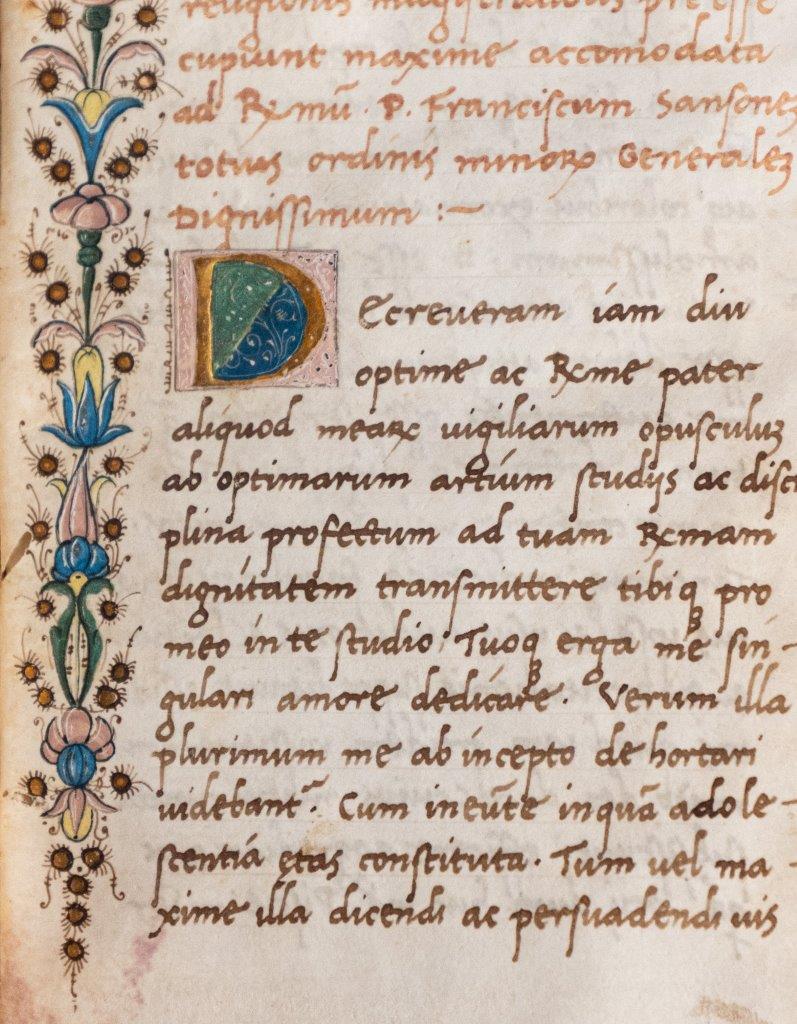
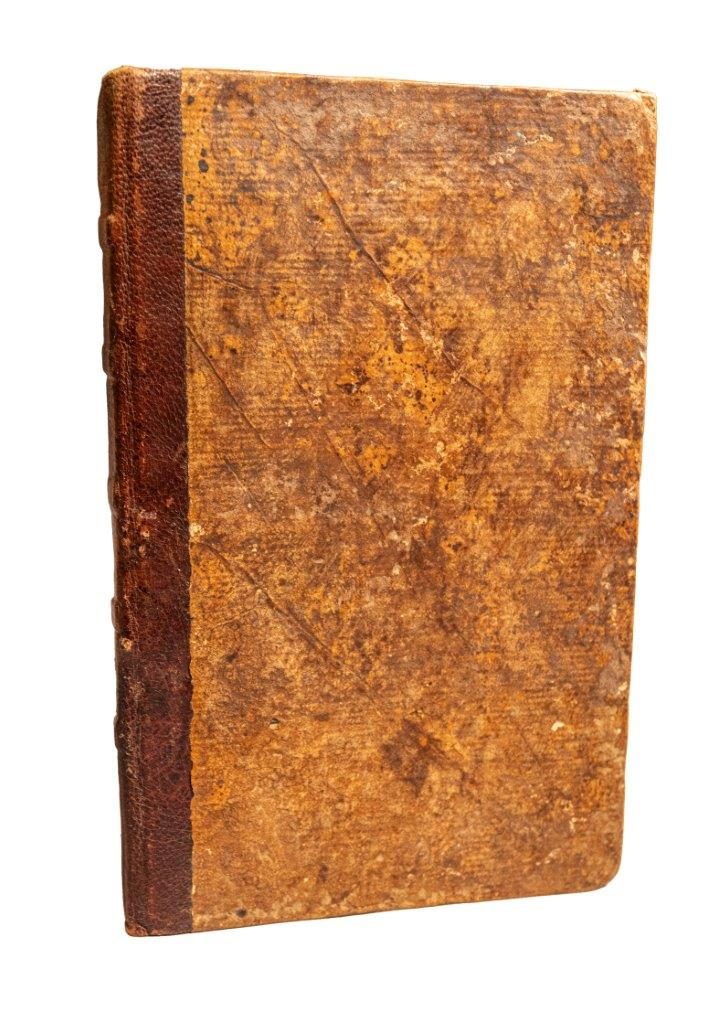
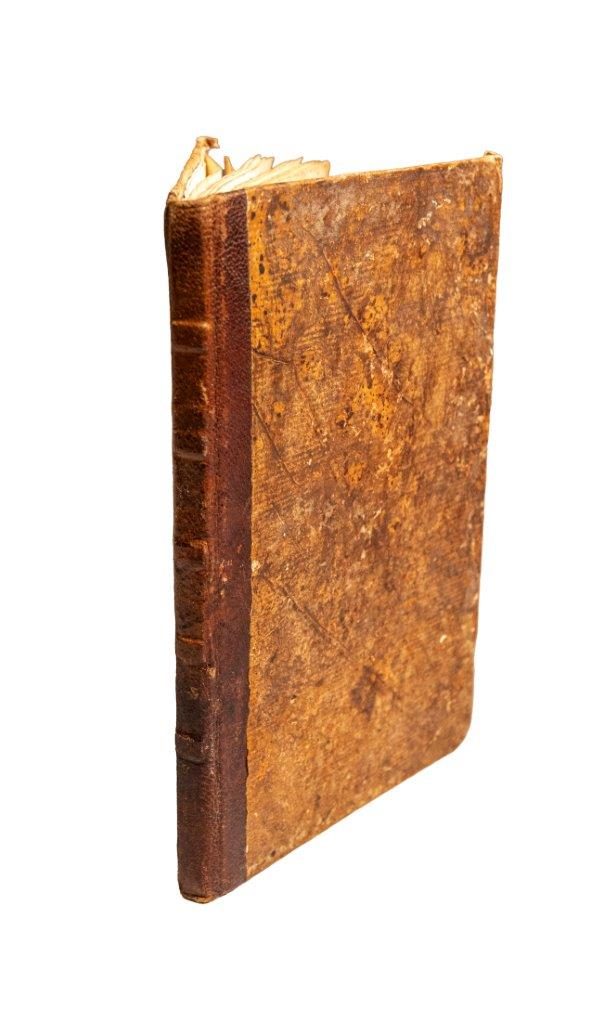
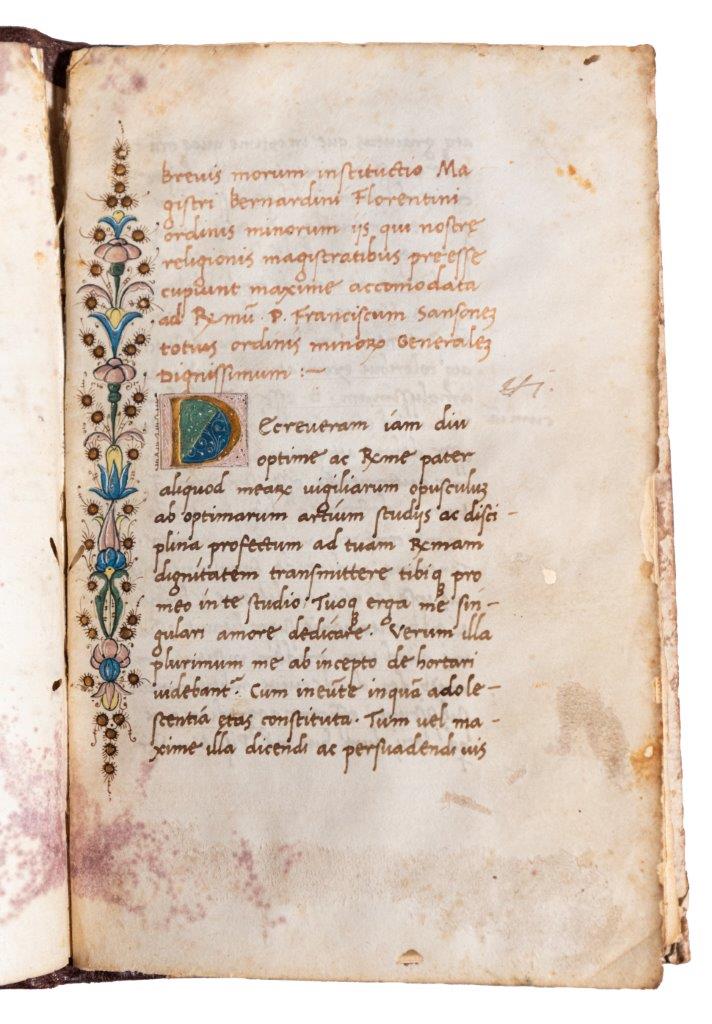
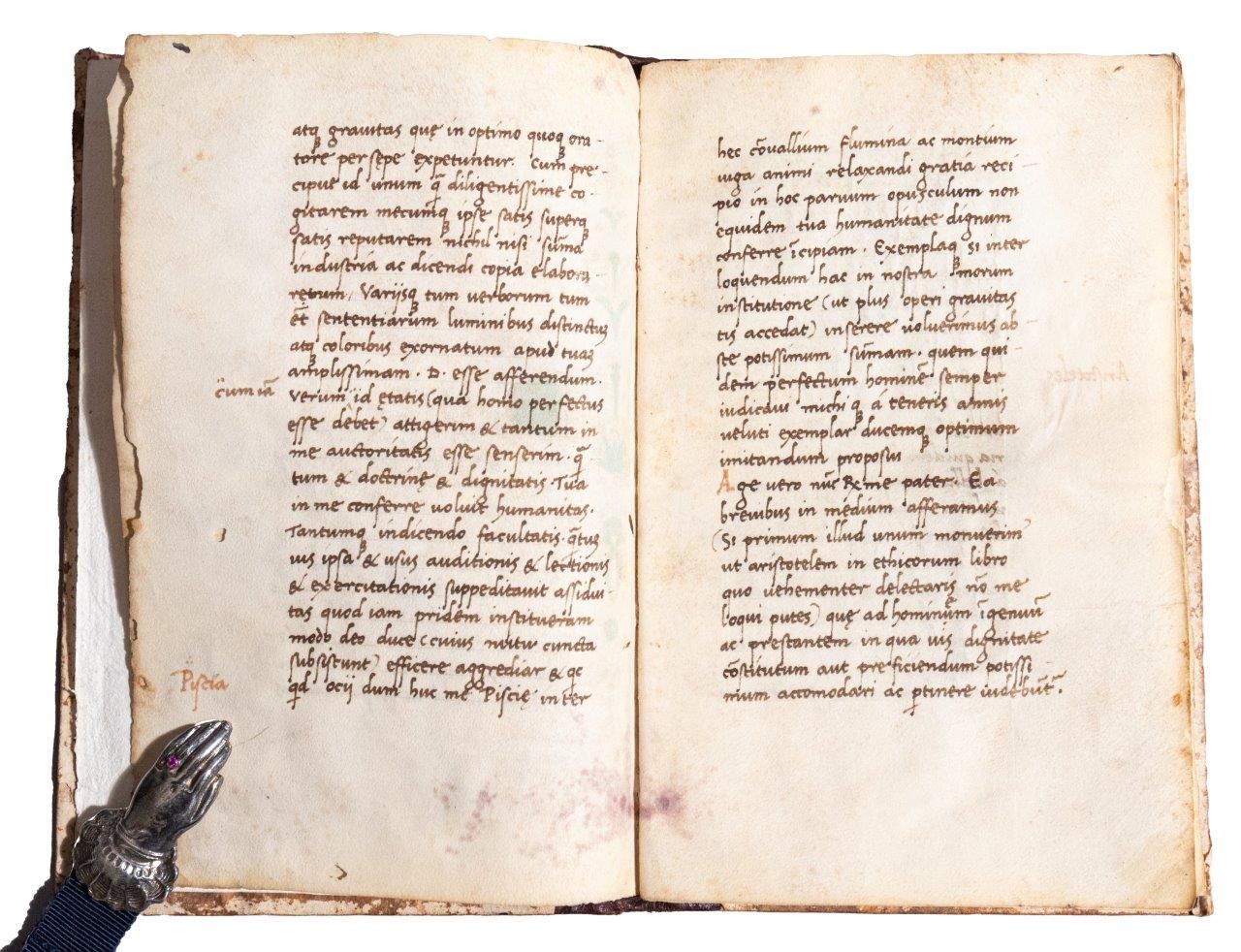
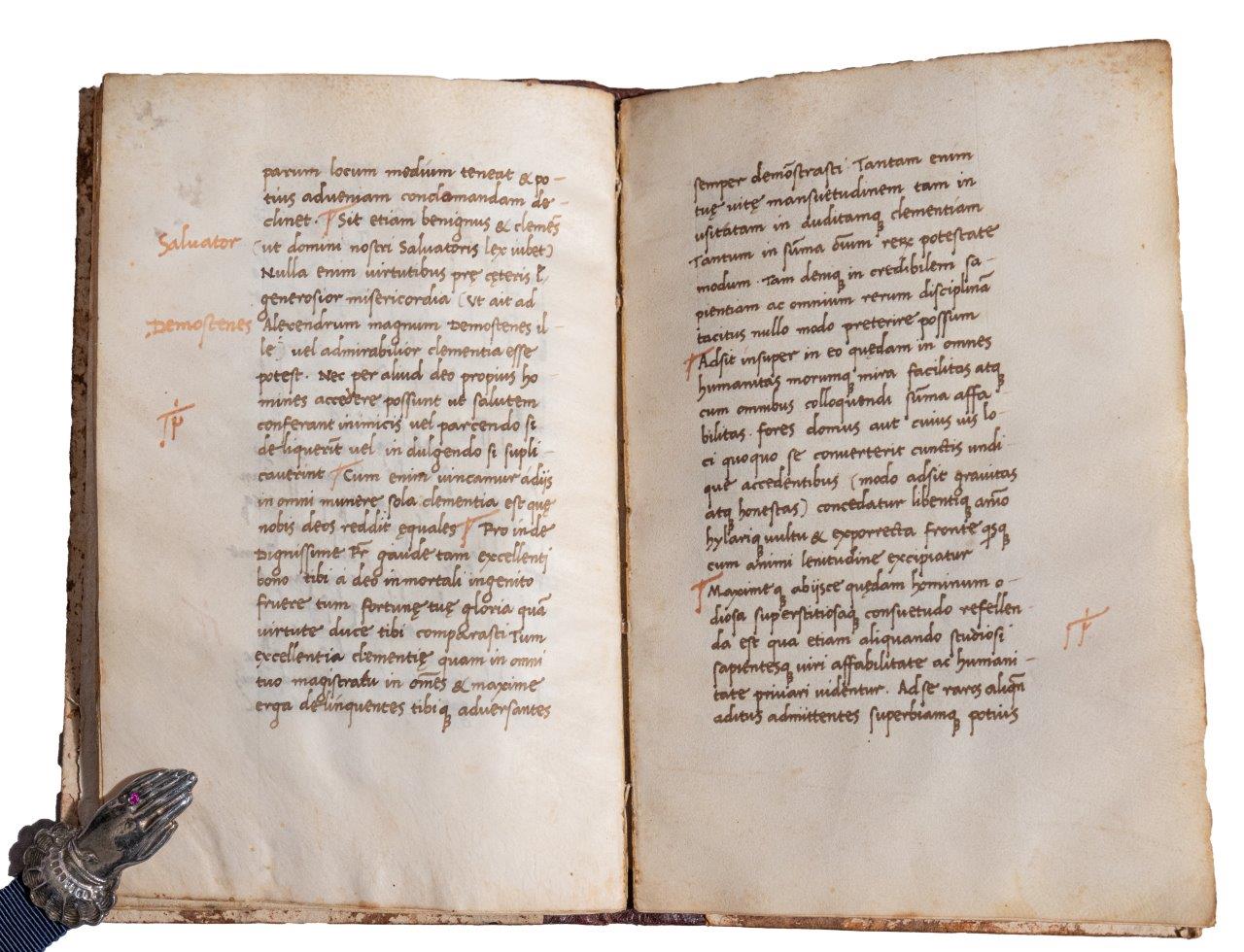
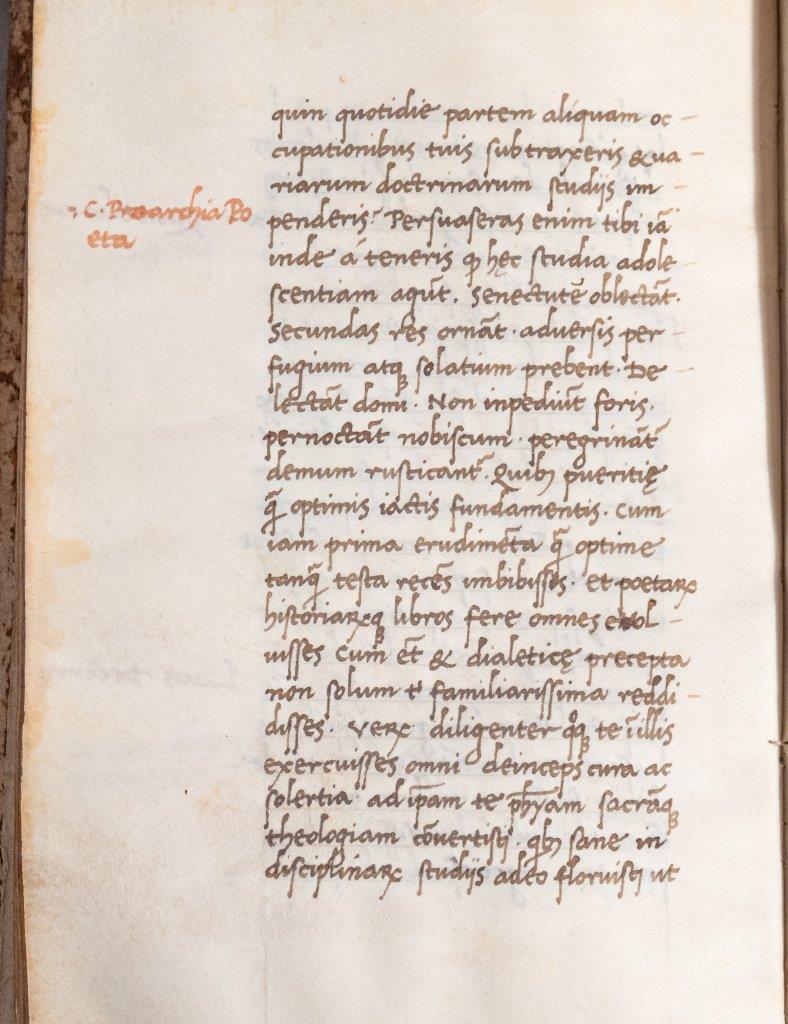
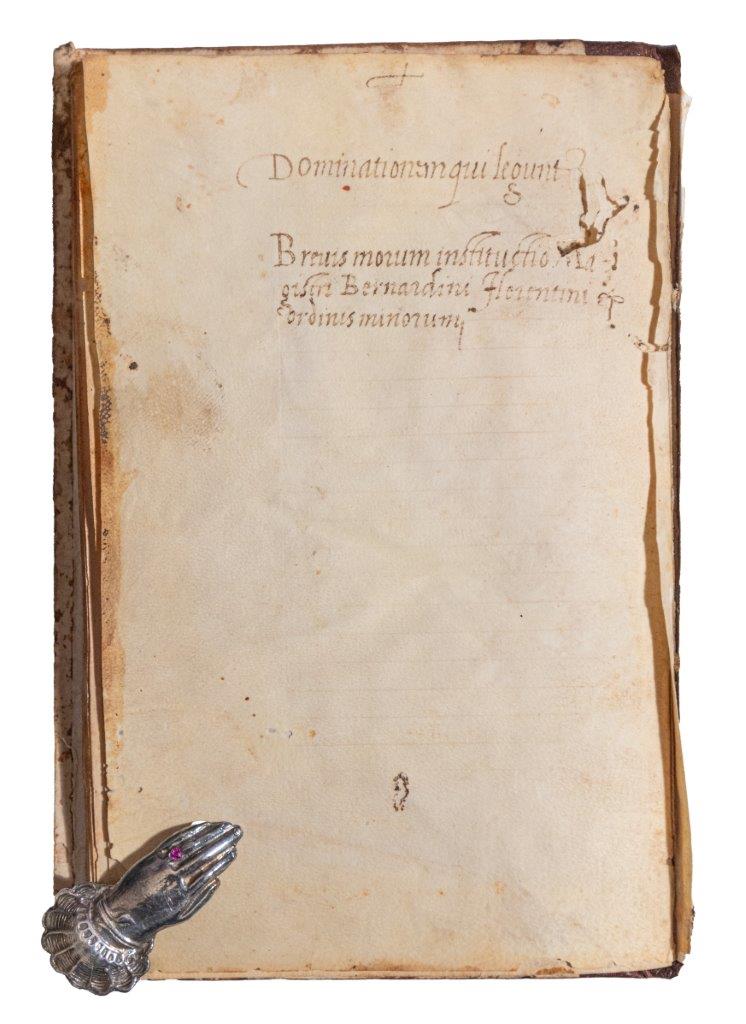
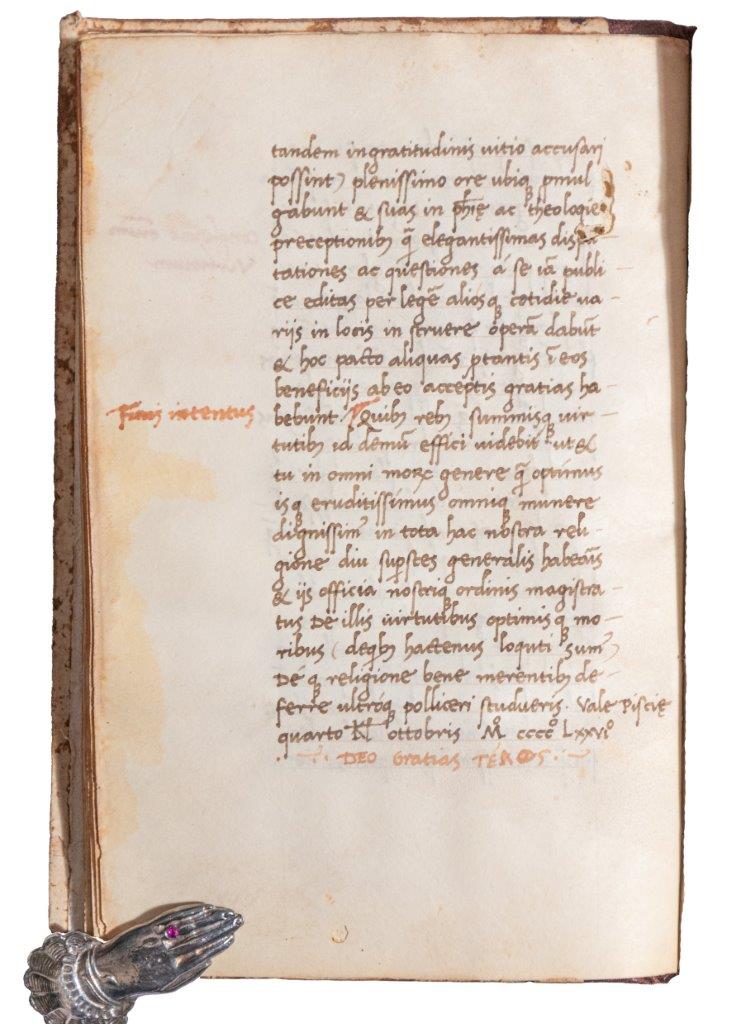
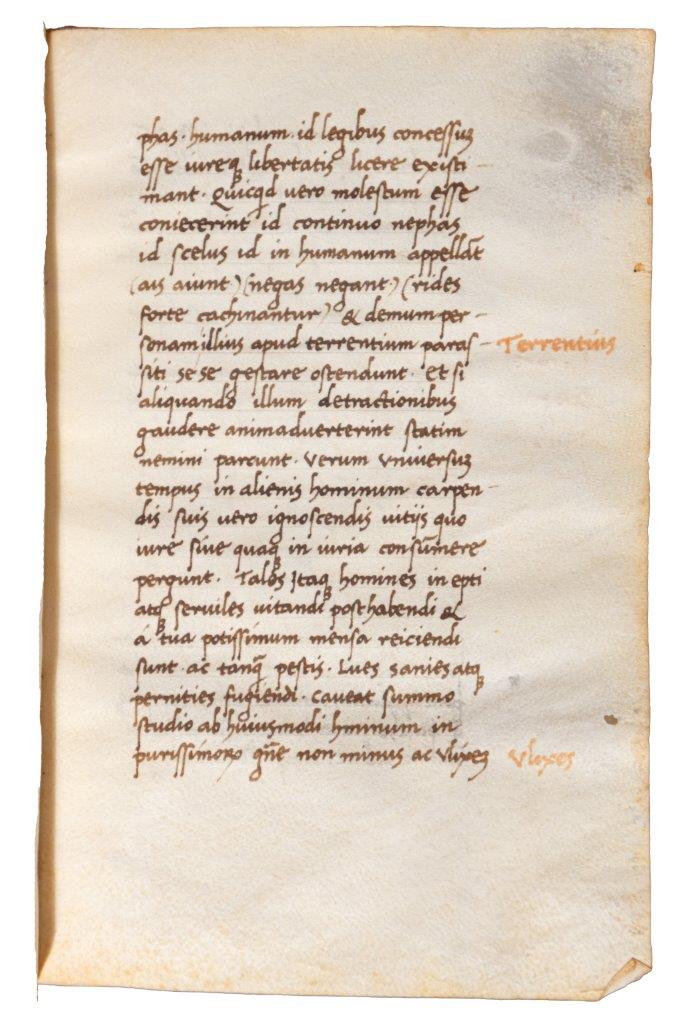
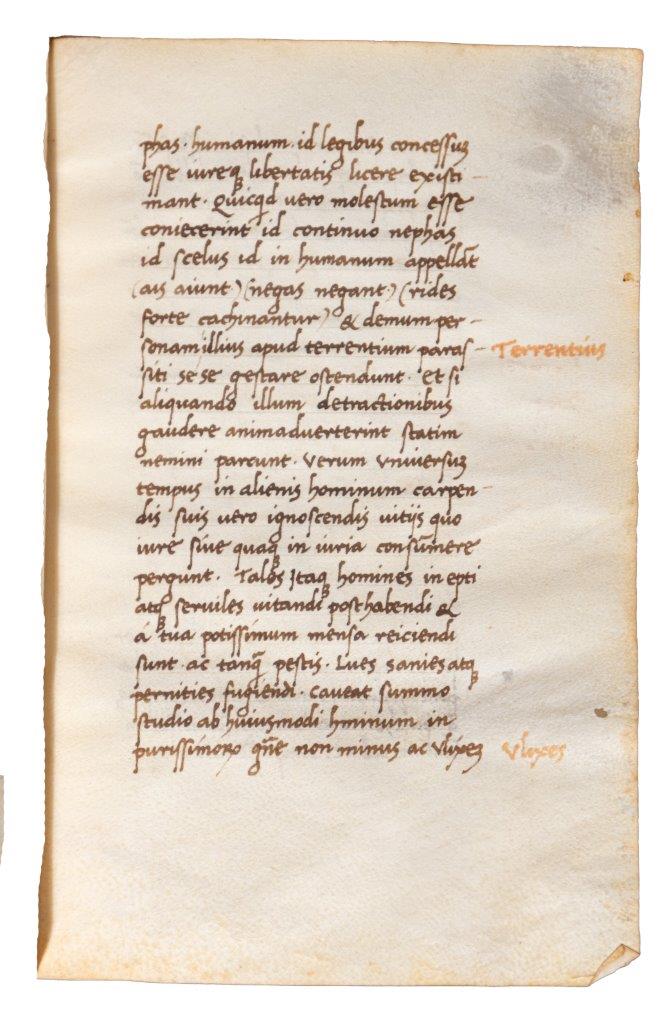
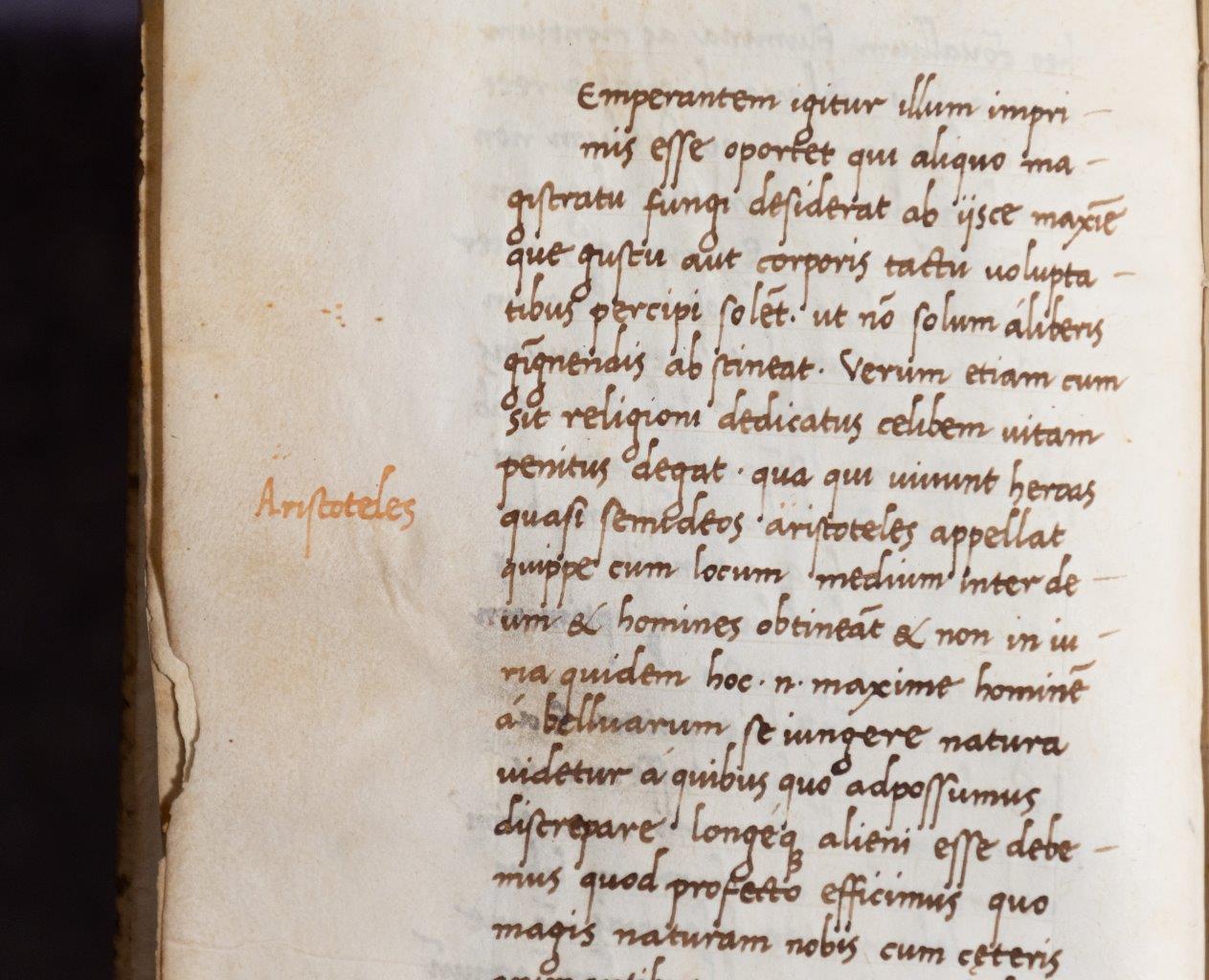
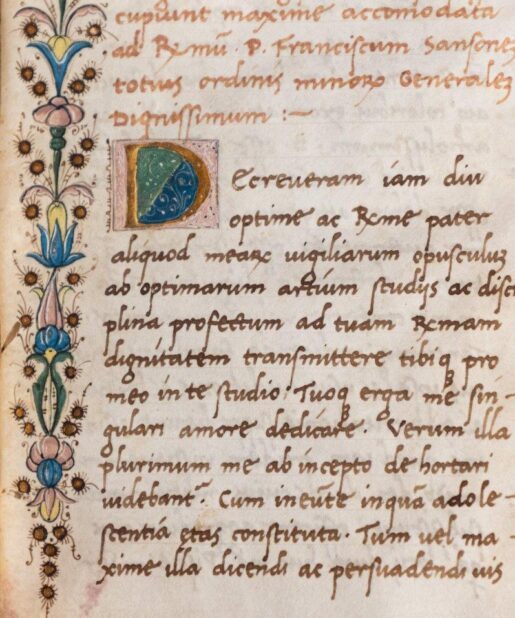
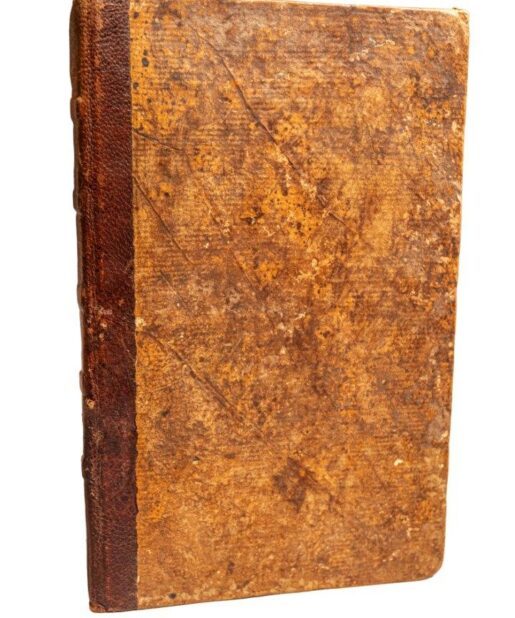
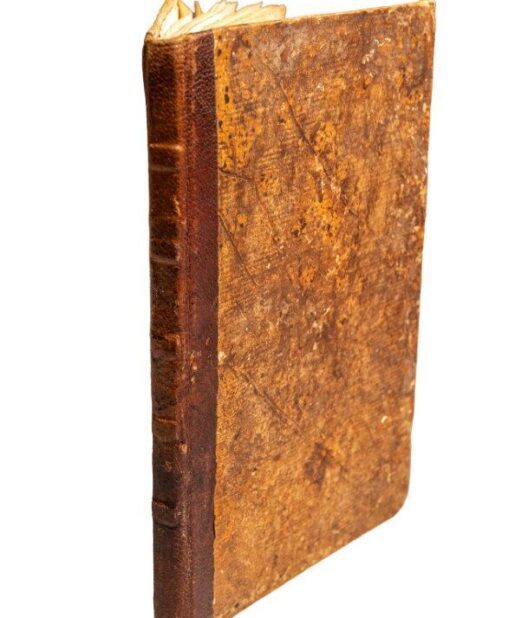
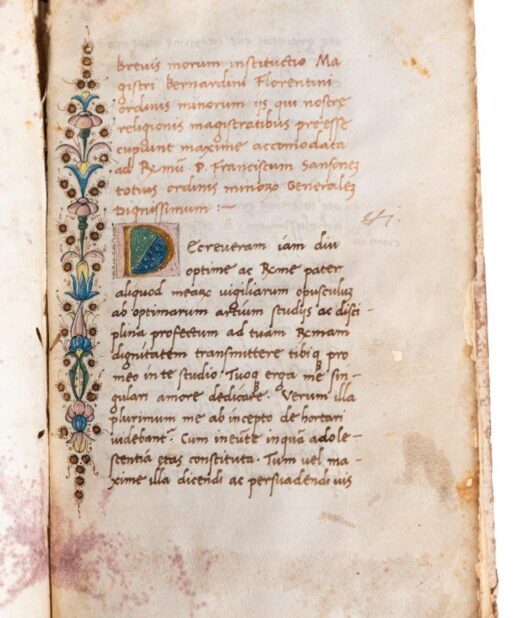
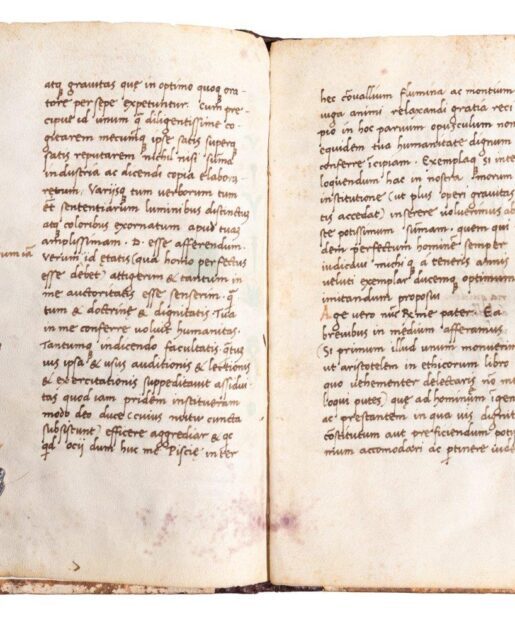
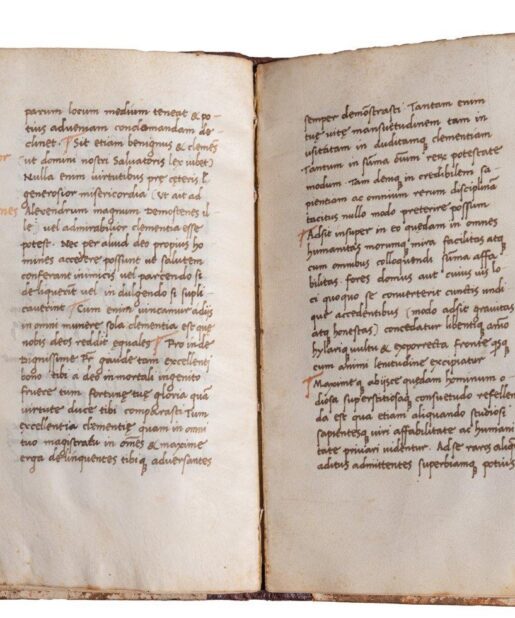
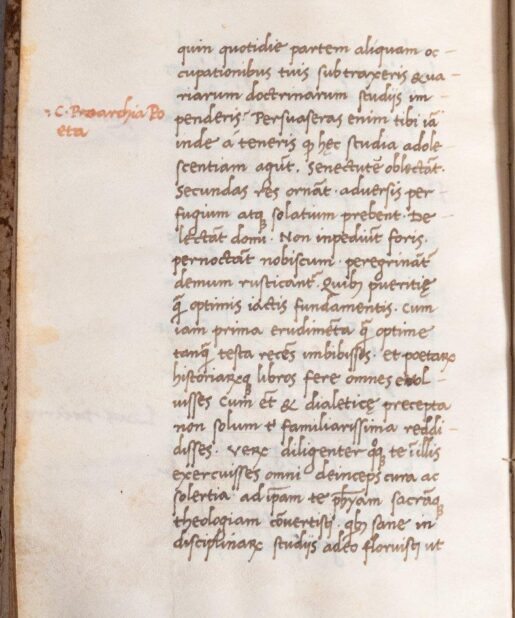
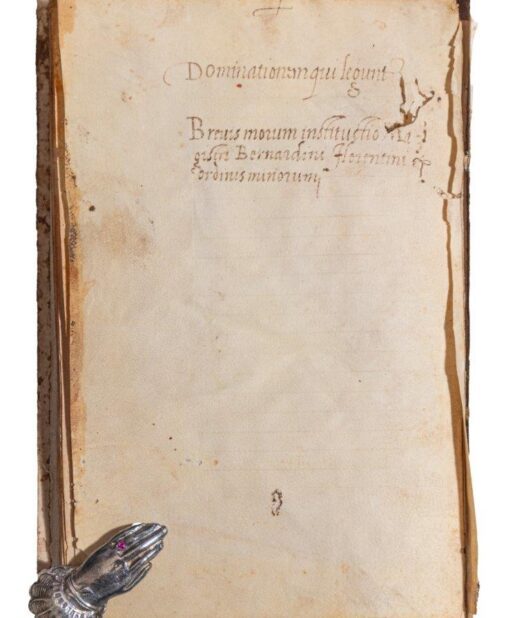
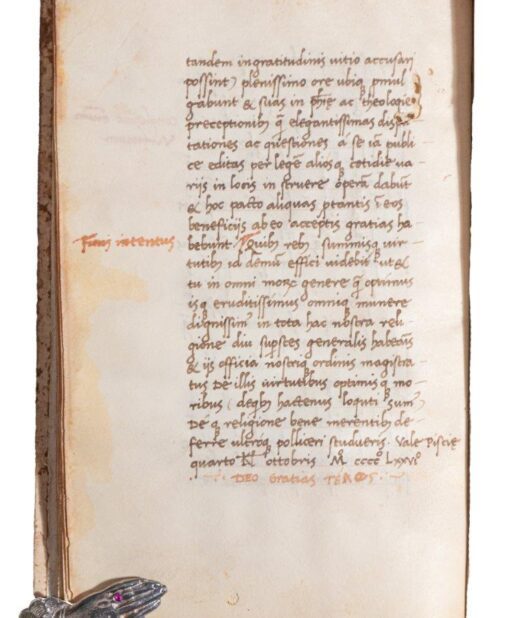
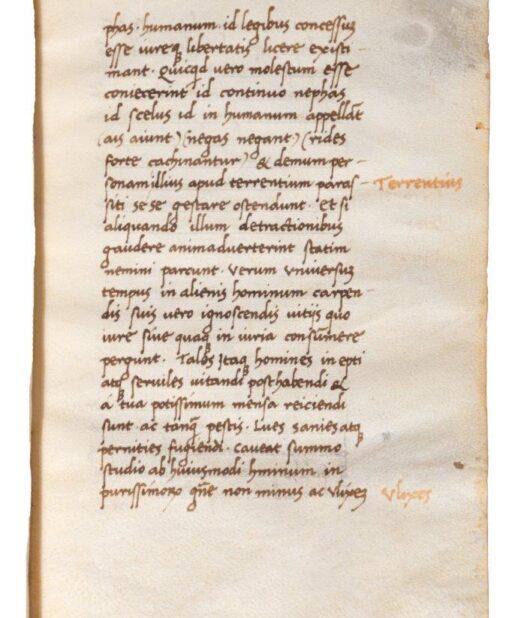
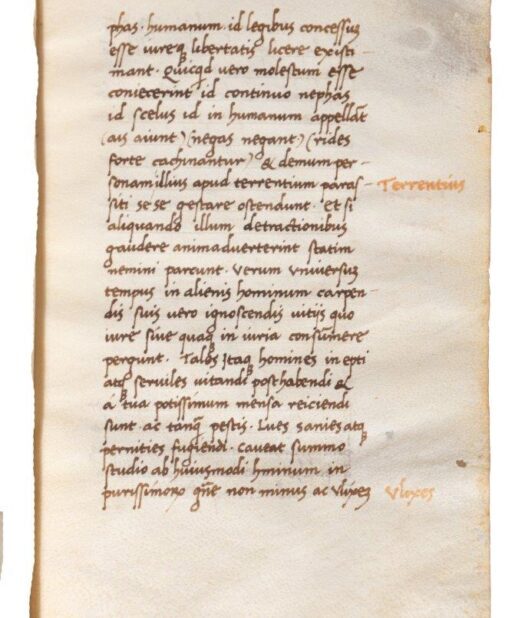
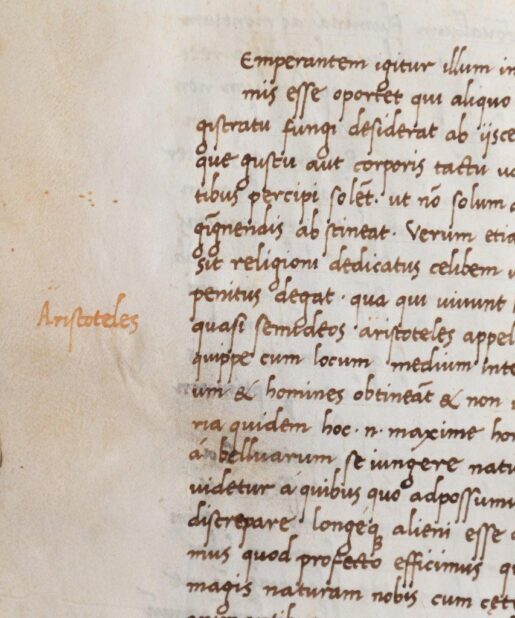
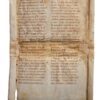

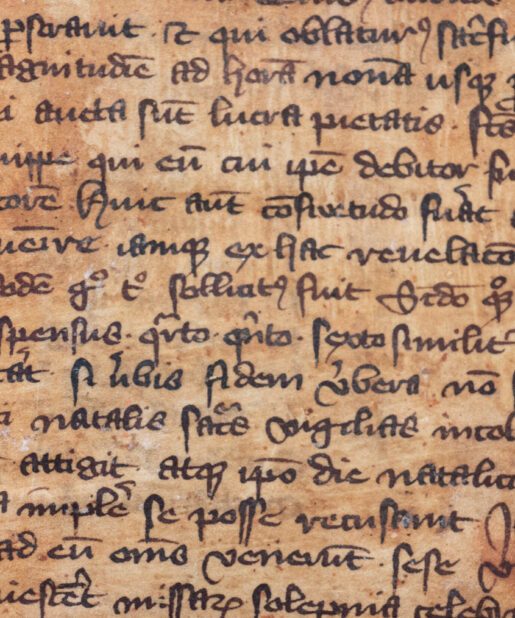
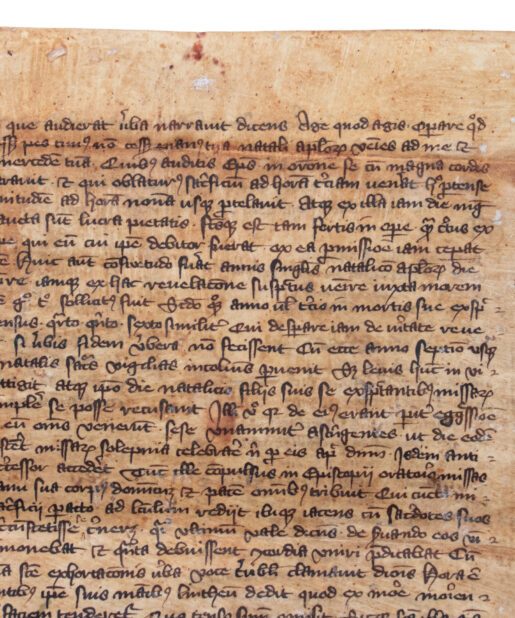
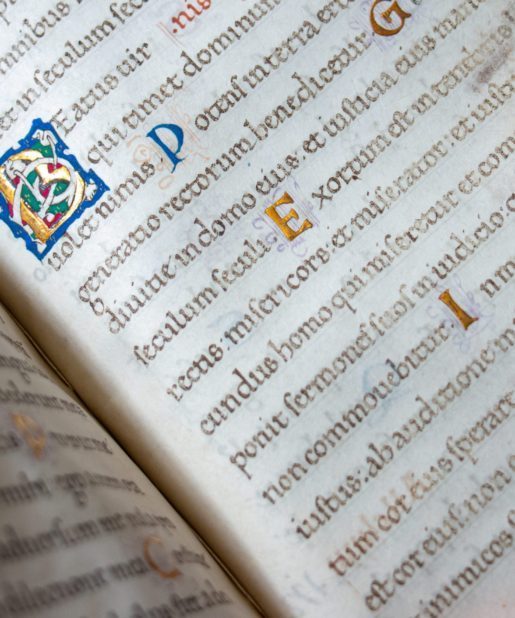
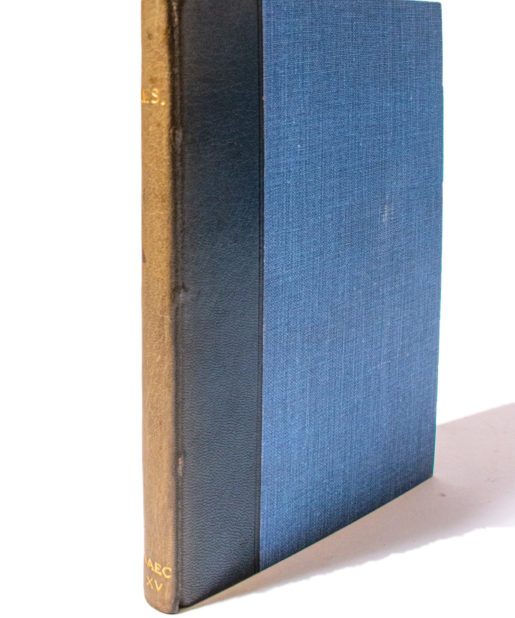
![An illuminated leaf from the Beauvais Missal, on vellum. [Northern France, c. 1310] An illuminated leaf from the Beauvais Missal, on vellum. [Northern France, c. 1310]](https://butlerrarebooks.co.uk/wp-content/uploads/2023/08/IMG_9687-515x618.jpg)
![An illuminated leaf from the Beauvais Missal, on vellum. [Northern France, c. 1310] An illuminated leaf from the Beauvais Missal, on vellum. [Northern France, c. 1310]](https://butlerrarebooks.co.uk/wp-content/uploads/2023/08/IMG_9683-515x618.jpg)
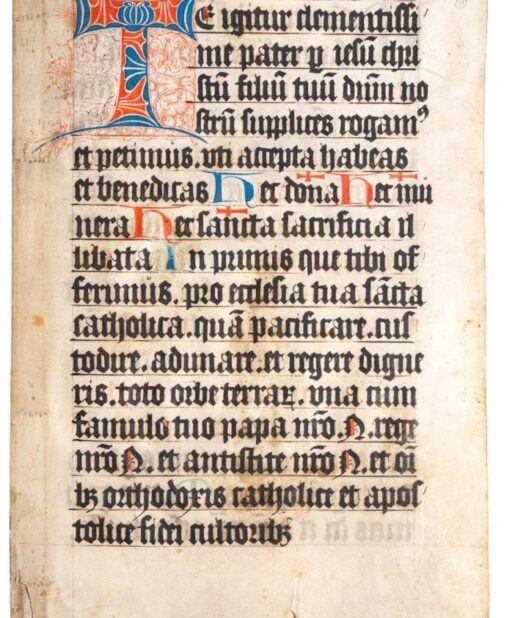
![Leaf from Baldo degli Ubaldi (1327–1400), Sextum codicis librum commentaria [Italy, late 15th century] Leaf from Baldo degli Ubaldi (1327–1400), Sextum codicis librum commentaria [Italy, late 15th century]](https://butlerrarebooks.co.uk/wp-content/uploads/2023/07/IMG_0101-515x618.jpg)
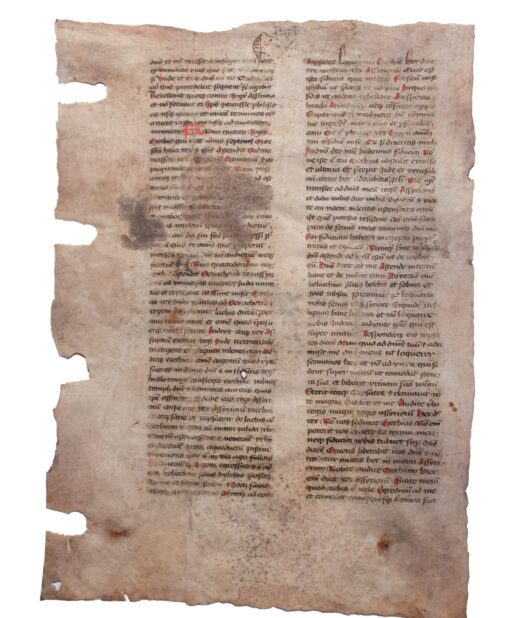
![Two fragments from Raymond of Penyafort (d. 1275), Summa de casibus penitentialis and Summa de matrimonio [Italy (or southern France?), 14th century] Two fragments from Raymond of Penyafort (d. 1275), Summa de casibus penitentialis and Summa de matrimonio [Italy (or southern France?), 14th century]](https://butlerrarebooks.co.uk/wp-content/uploads/2023/07/IMG_0096-515x618.jpg)
![Two fragments from Raymond of Penyafort (d. 1275), Summa de casibus penitentialis and Summa de matrimonio [Italy (or southern France?), 14th century] Two fragments from Raymond of Penyafort (d. 1275), Summa de casibus penitentialis and Summa de matrimonio [Italy (or southern France?), 14th century]](https://butlerrarebooks.co.uk/wp-content/uploads/2023/07/IMG_0095-492x618.jpg)
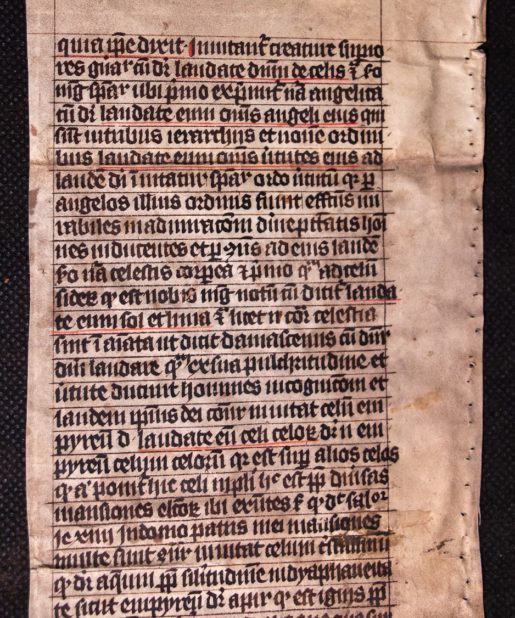
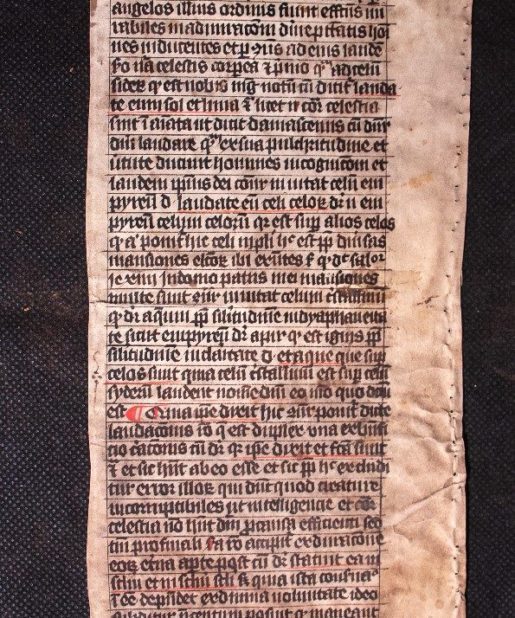
Reviews
There are no reviews yet.